"It's rare to see works from a new generation of Chinese directors!" "This has completely reshaped my impression of Chinese cinema." "Once again, I'm struck by the vastness and cultural diversity of China." On October 14th, the "2024 Maritime Guangdong Young Director Support Program" (hereinafter referred to as the Maritime Guangdong Program), organized by Yangcheng Evening News Group, kicked off its 2024 film screening season in Sapporo, Hokkaido, Japan. After watching the films, Japanese audience members shared their excitement and impressions.
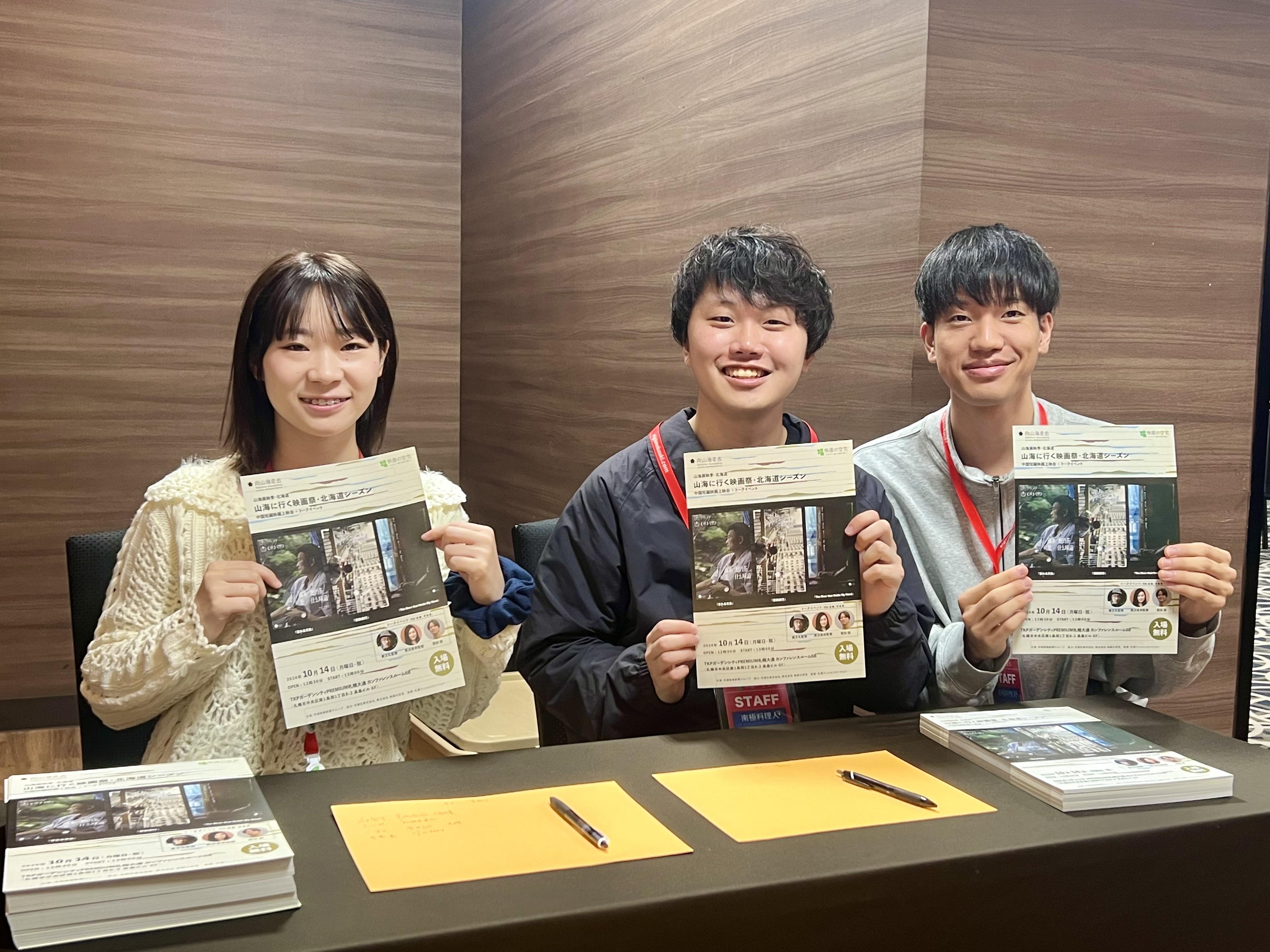
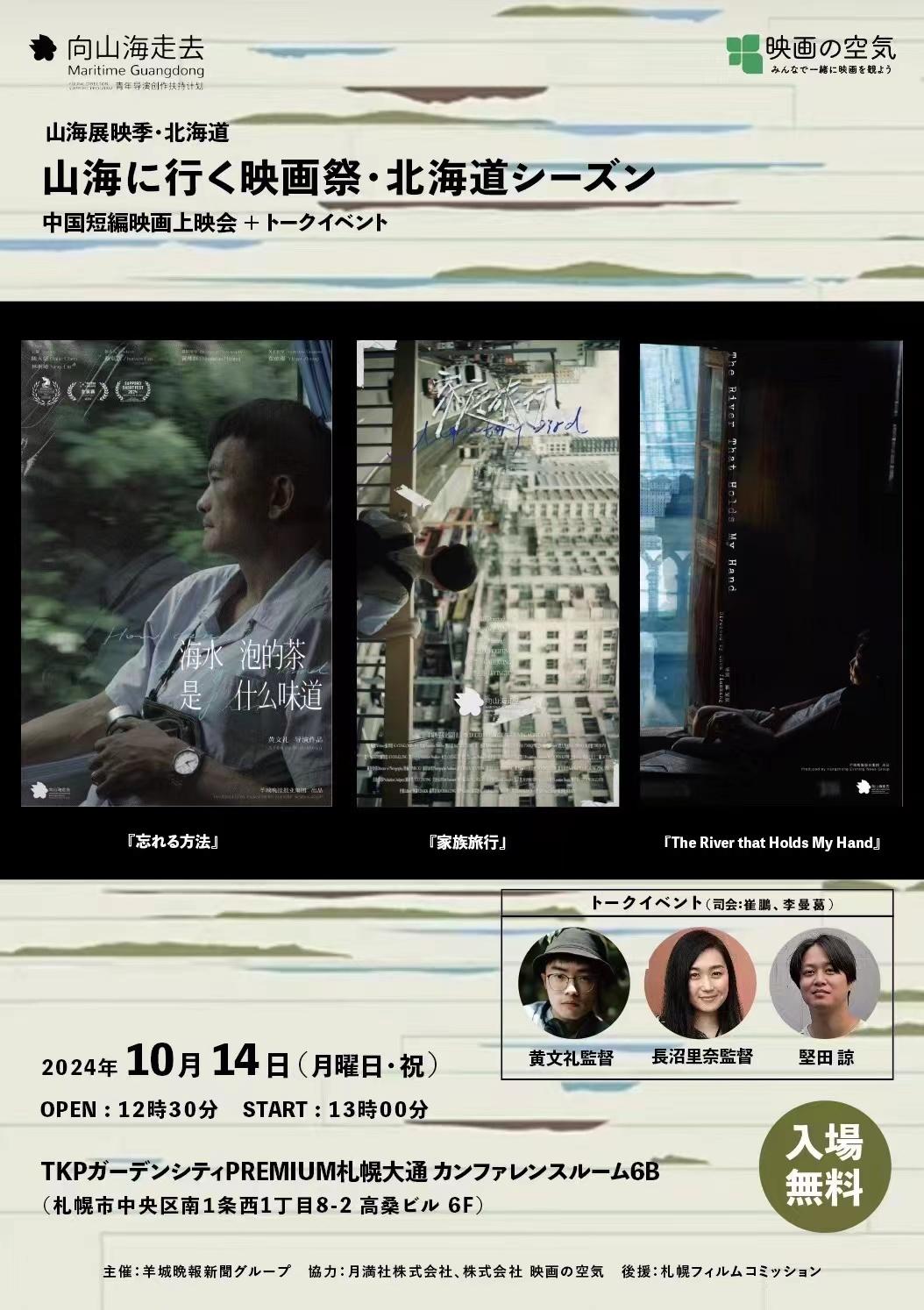
Following its successful screenings in Kuala Lumpur, Malaysia, In 2023, the Maritime Guangdong Program short films have once again gone abroad. On this occasion, Many Japanese filmmakers, cultural scholars, and film enthusiasts attended the screenings, engaging in direct dialogue with the young directors. The discussions extended beyond cinema, touching on the different creative environments of Chinese and Japanese directors and the shared cultural resonance between Chinese and Japanese youth.
This event is organized by Yangcheng Evening News Group, supported by the Sapporo Film Commission (SFC), with academic backing from the Graduate School of Humanities and Human Sciences at Hokkaido University. KOO-KI Co., Ltd. And Tsukimansha Holdings Co., Ltd. Are co-sponsors of the event. In addition to screening the short films, the Maritime Guangdong Program's organizing committee held discussions with organizations such as the SFC and the Sapporo International Short Film Festival (SFF), exploring opportunities for future cross-border collaborations to promote intercultural exchange through cinema.
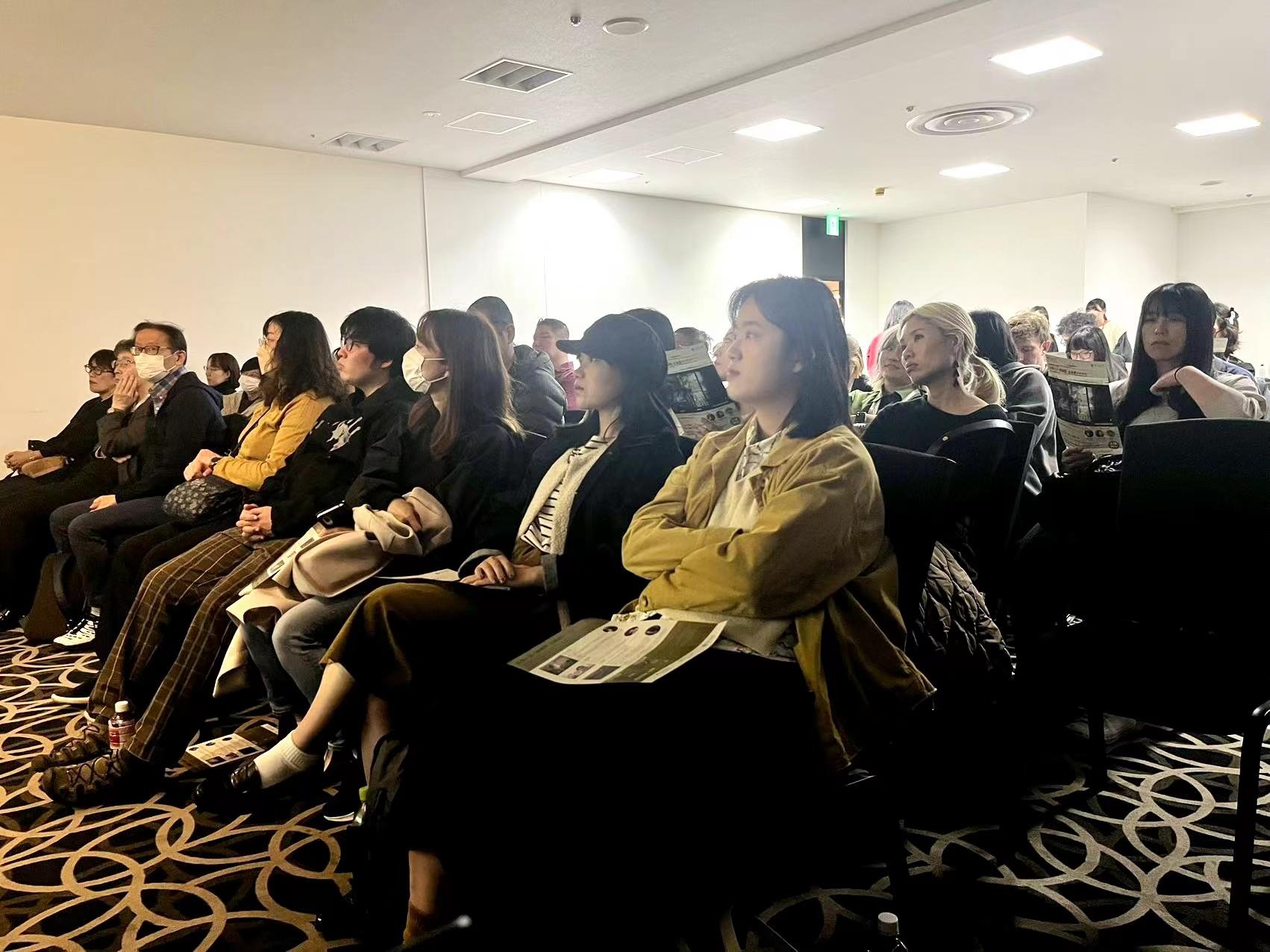
Enthusiastic response at the screening
The 2024 Maritime Guangdong screening season in Hokkaido featured three short films: "Migratory Bird", "How Can I Rid My Mind of Her", and "The River That Holds My Hand". All three works were directed by emerging filmmakers from the Guangdong-Hong Kong-Macao Greater Bay Area, who were selected for the Maritime Guangdong Program in 2023 and supported with funding for their creations. "Migratory Bird", directed by Su Zeliang, tells a family story set in Hong Kong; "The River That Holds My Hand", directed by Chen Jianhang, captures a shared sense of nostalgia between Chaozhou, china, and Ho Chi Minh City, Vietnam; while Huang Wenli's "How Can I Rid My Mind of Her" follows the journey of a Vietnamese returnee working at a tea factory in Qingyuan, Guangdong, as he grapples with personal loss and pain. Notably, "How Can I Rid My Mind of Her" has already been nominated at several domestic and international film festivals, including the ongoing 19th SFF.
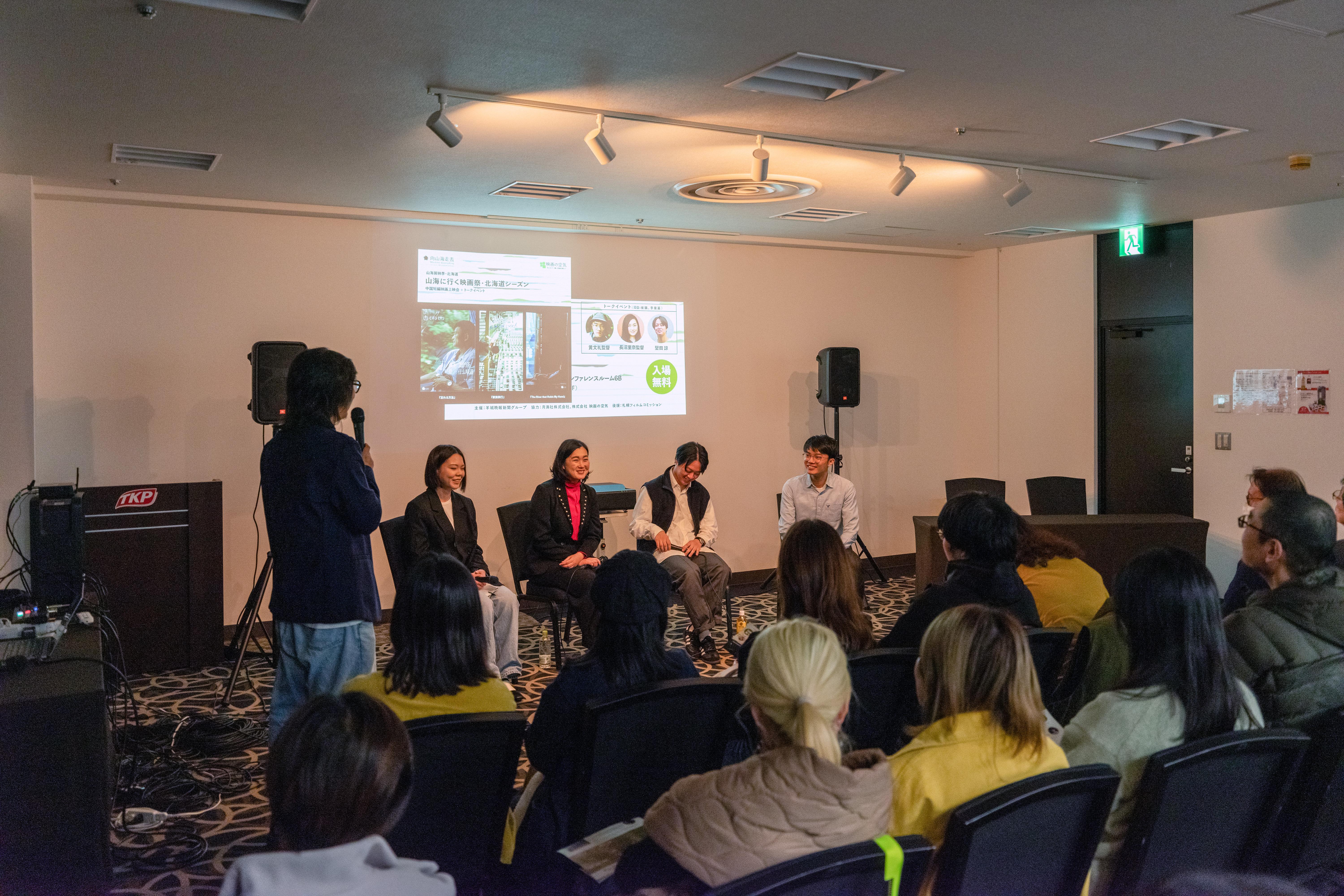
The news that these three Lingnan short films were coming to Sapporo quickly spread across the city, thanks to local media like the Hokkaido Shimbun Press. By the time the event took place, the screening room was packed, with extra chairs needed to accommodate the overflow of viewers. Though the films were shot in Lingnan dialects, the emotions portrayed transcended language barriers, and the thoughtful Japanese subtitles helped the audience fully immerse themselves in the stories. The 90-minute screening flew by, and after it ended, the room was filled with applause, reflecting the audience's deep appreciation for the film.
Huang Wenli, director of "How Can I Rid My Mind of Her", expressed his gratitude on behalf of the young filmmakers for the warm reception. although slightly nervous in front of the international audience, He quickly relaxed as they eagerly raised questions one after another. "What's the special significance of tea in the film?" "Is there a difference in meaning between the Chinese and Japanese titles?" "Why did you combine a story about overseas Chinese with a love story?" Huang patiently answered each question, explaining that the film's inspiration came from real-life historical events involving Vietnamese returnees, especially the dramatic scenes of families making their way back to China: "One family took two boats, anticipating the potential dangers of a sea storm. It made me wonder—if the storm had truly come, and one boat sank, How would the remaining family members live the rest of their lives?"
A member of the audience asked about the film's open-ended conclusion: "The man goes to the sea that took his wife—was he there to mourn or to say goodbye?" Huang responded: "The ending poses a question. When the tides of history push us forward, do we remain stagnant, or do we try to take a step forward? The man in the film takes his step forward."
Sapporo extends an invitation to Chinese filmmakers
In addition to engaging with the audience, Huang also participated in a roundtable discussion with representatives from Japan's film and academic communities. Japanese director Rina Naganuma noted film scholar and critic Ryo Kata, and Yuna Haga from the SFC joined Huang to discuss the film industries and creative processes in China and Japan.
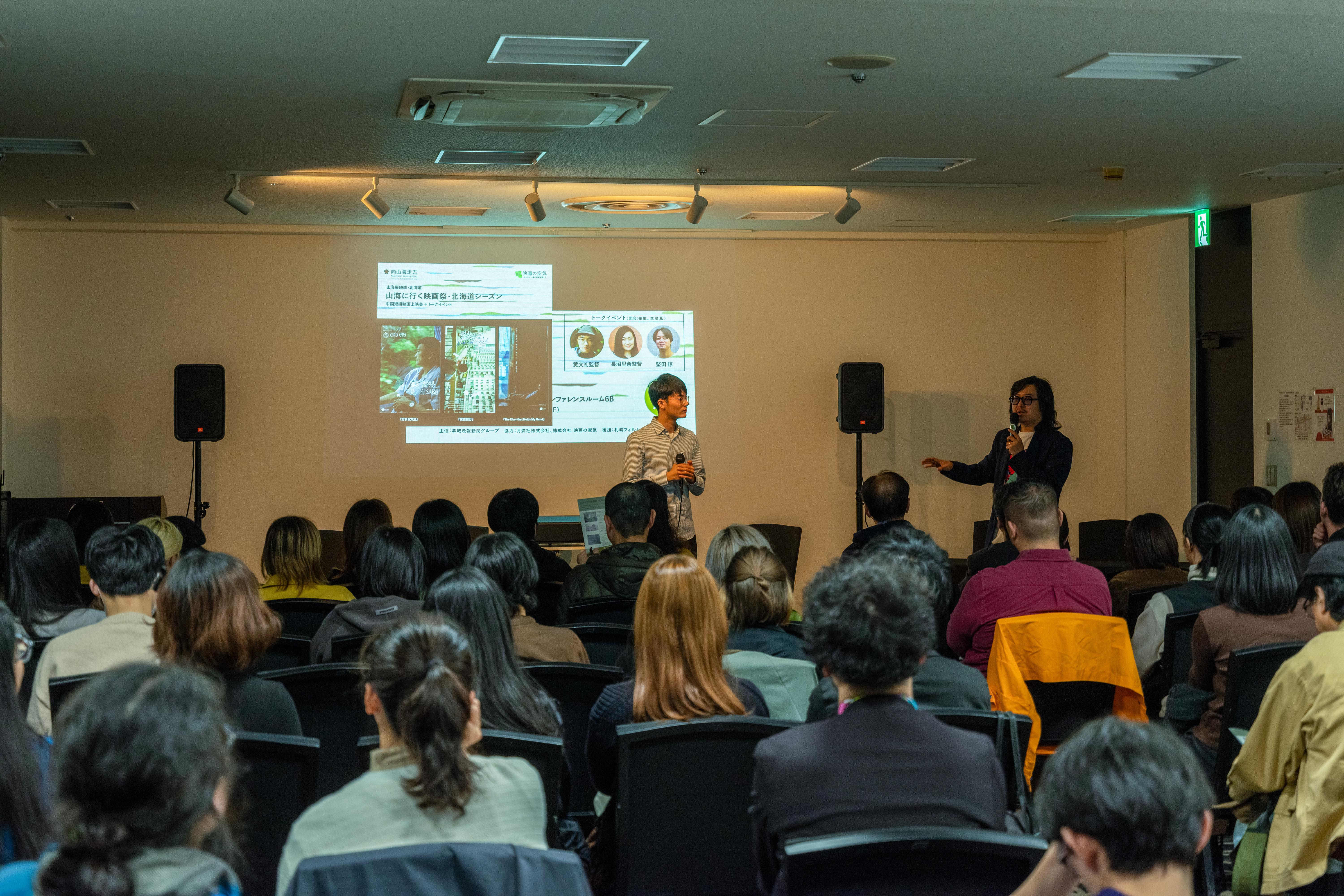
Rina Naganuma, who has worked closely with young filmmakers from Hong Kong and Macao in the past, was impressed by the "quiet" style and mature use of long takes in the three short films. Ryo Kata praised the film "How Can I Rid My Mind of Her" for its excellent audiovisual language, stating, "It not only captures the essence of Lingnan visually, but its sound design also sparks rich oceanic imagery of China."
During the discussion, Huang shared his concerns as a new director: "Do you think my film is too slow-paced? Is there really a market for films like this?" Rina Naganuma confidently replied: "I didn't find it boring at all. On the contrary, It moved me deeply." she even compared Huang's style to that of Chinese director Bi Gan, whose films have gained significant popularity in Japan in recent years. Ryo Kata smiled and gestured to the packed audience: "Just look at the crowd here—that's your answer. If you ever make a feature film, I'd love to be one of your first viewers."
Yuna Haga from the SFC inquired about the various shooting locations in the film and whether there were any challenges during production. Huang credited the support of Yangcheng Evening News Group, saying, "Thanks to their help—not only with funding but also with logistics like locations—we were able to overcome many hurdles."
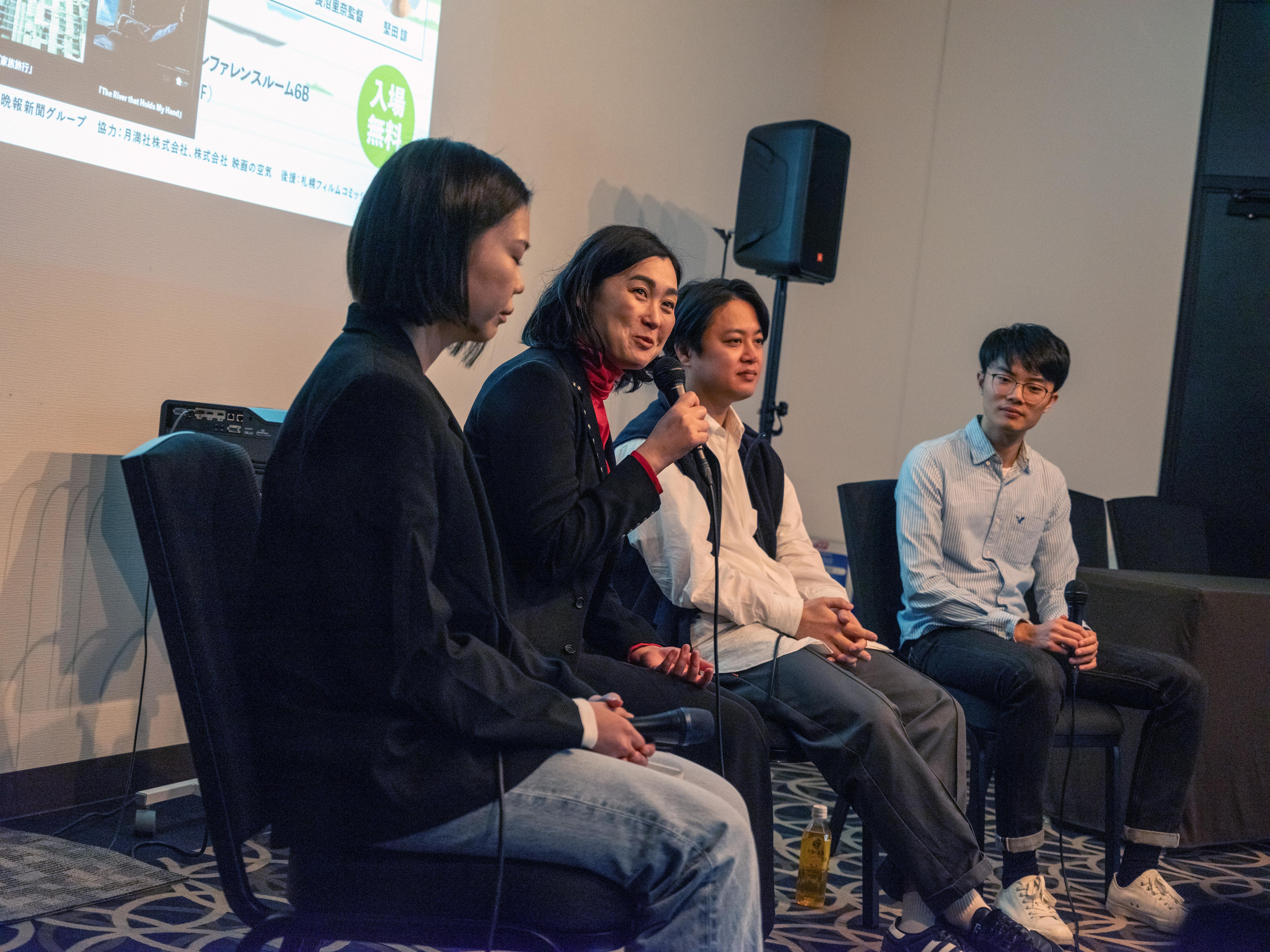
Yuna Haga then extended an invitation through Yangcheng Evening News to Chinese filmmakers, encouraging them to come to Sapporo for future projects. She highlighted the city's film incentive policies: "For films with at least seven days of shooting in Sapporo, the SFC can offer a subsidy of up to 10 million yen."
Lingnan culture captivates Japanese audiences
Discussing the career paths of young filmmakers in China and Japan, Rina Naganuma expressed admiration for the formal education many Chinese filmmakers receive. She noted: "I grew up learning on set after high school. In fact, many Japanese filmmakers never went to college. after watching these three Maritime Guangdong Program short films, I'm struck by how polished the techniques of China's young directors are!I wonder how far Japan's young filmmakers could go if they had the same professional training."
Naganuma also commented that the films offered a refreshing view of Chinese mainland cinema: "Previously, our impression of Chinese mainland films was mostly of big-budget productions. This time, we saw something completely different, and it felt incredibly fresh." she encouraged the young directors to stay true to their style, citing how filmmakers like Takeshi Kitano and Hirokazu Koreeda have achieved success with "quiet" films on the global stage while maintaining solid domestic box office returns.

Ryo Kata shared a similar sentiment, saying: "Rather than focusing on differences, I see more similarities between young filmmakers in both countries. Before they become famous, they often work with limited budgets, Leading them to explore personal themes like love and family." however, He was especially captivated by the unique charm of Lingnan culture portrayed in the Maritime Guangdong Program films, stating, "The architecture in southern China is something I've never seen before. China's vast and diverse landscapes allow for a wide variety of cinematic expressions."
Naganuma echoed his thoughts, noting, "Japan is an island nation with a smaller geographic area, so our culture isn't as diverse as China's." she also mentioned that the overseas Chinese culture depicted in the films was new to her and praised the rich sense of history in the works: "While Japanese filmmakers often focus on the present, Chinese directors frequently draw from historical contexts, which I find deeply moving."
About the Maritime Guangdong Program
The Maritime Guangdong Program, organized by Yangcheng Evening News Group, Is a major talent initiative aimed at discovering, nurturing, and supporting outstanding young Chinese directors worldwide. Centered in the Guangdong-Hong Kong-Macao Greater Bay Area, the program seeks emerging voices in film creation, offering support for short films across various genres, including narrative, documentary, and animation. Through this program, young filmmakers are encouraged to push the boundaries of Chinese cinema and present the world with new perspectives on Chinese stories.
















